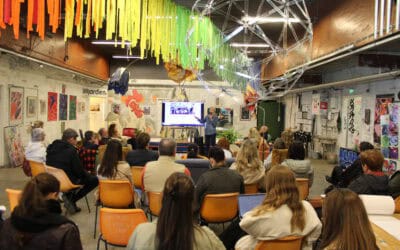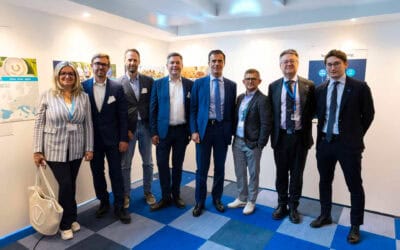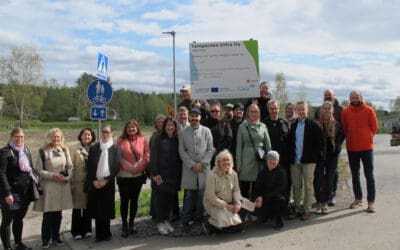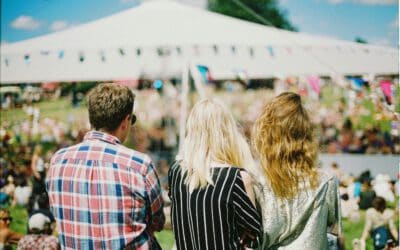The NonHazCity project has compiled knowledge about hazardous substances in everyday life and about how to reduce their consumption. Campaigns were run among consumers, companies and municipal administrations in nine cities around the Baltic Sea: Pärnu, Turku, Gdansk, Riga, Hamburg, Västerås, Stockholm, Silale and Kaunas. One site visit even led the project to the office of the Managing Authority/Joint Secretariat of Interreg Baltic Sea Region.
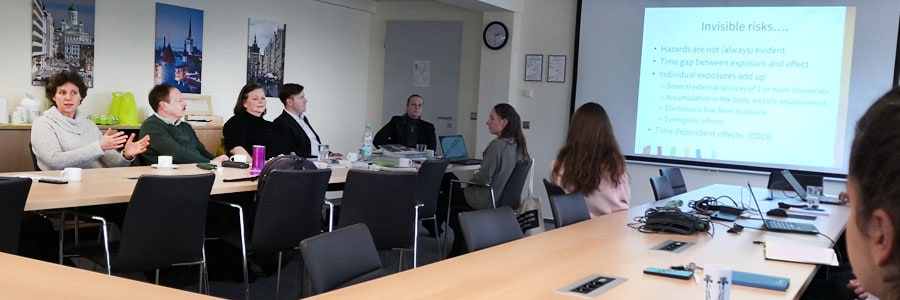
A chemist, an environmental scientist, and two NGO campaigners from the team of the Baltic Environmental Forum (BEF) Germany – this was the delegation from the NonHazCity project that visited the office of the Managing Authority/Joint Secretariat (MA/JS) of Interreg Baltic Sea Region in Rostock, Germany in mid-January 2019.
NonHaz interior materials and furniture
The main purpose of this site visit was to check the office for hazardous substances. After a walk around the offices, a thorough look and some targeted questions to the team leaders, deputy project manager Heidrun Fammler of BEF concluded: “The office is equipped with environmentally friendly interior materials and furniture, e.g. wooden furniture, simple wallpaper and dispersion paints, few plastic items, solvent-free tape, and some ecolabeled utensils. The carpet material should be checked and for office/conference materials improvement hints were given.”
NonHaz cleaning service
In addition, the experts on hazardous substances supported the Secretariat with a tender for an environmentally friendly cleaning service. The NonHazCity team reviewed and commented on the draft tender text in great detail and pointed out, for example, to request products with officially recognised ecolabels and how to specify a wish for environmental friendly cleaning detergents. “NonHazCity helped us to define specific criteria for a tender that will result in a more environmentally friendly and more sustainable cleaning service,” says Ronald Lieske, team leader of the programme unit: “Without the help of NonHazCity, we would not have developed such a clear tender for sustainable cleaning.”
NonHaz private households
Last but not least, 15 staff members gathered to hear the NonHazCity team present tips for avoiding hazardous substances in their private households. “I realised after the NonHazCity visit to our office that I need to urgently replace my frying pans because the coating was scratched and thus hazardous substances were leaking into our food,” reflects Stefanie Maack, one of the communication officers at the MA/JS. She tried to follow the recommendations by NonHazCity and looked for new coated pans produced in the European Union and labelled “free of per- and polyfluoralkysubstrances (PFAS)”. It wasn’t easy to find even a single such pan in the local shops. In the end, she found a solution in my favourite online shop for eco products: a reasonably priced pan with a special GreenTek coating without any PFAS, made in Denmark, and even from recycled aluminium. “It took me a bit of effort to locate a frying pan which fulfills the NonHazCity criteria, but I feel much better now when I fry an egg for my daughter.”
NonHaz objective
“Making our own operations more and more sustainable on all levels is a defined management objective of IB.SH,” stresses Ronald Lieske. IB.SH (Investitionsbank Schleswig-Holstein), the development bank of Schleswig-Holstein, has been hosting the funding programme’s Managing Authority and Joint Secretariat since the late 1990s. “NonHazCity helps real people in many countries to make real changes which will hopefully add up to a meaningful contribution to making the Baltic Sea healthy in the long run,” he concludes. Water pollution by hazardous substances is, after all, one of the pressing challenges of the entire Baltic Sea – and the Interreg project NonHazCity clearly helps regions and cities tackle it jointly.
This article was compiled by Stefanie Maack (Interreg Baltic Sea Region MA/JS) based on an in-house visit and interview with Heidrun Fammler (Baltic Environmental Forum Germany).
NonHazCity project website
NonHazCity @ Interreg Baltic Sea Region’s project library



